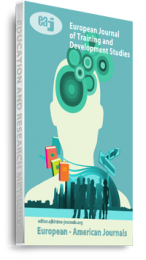This paper attempts to estimatethe costs of realizing Quality Assurance throughbudgetary allocation mechanism in Nigerian universities. The Federal Republic of Nigeria (2013, p. 70) recently adopted 26% (UNESCO minimum standard) as a basis of eliminating deficiencies for realizing education imperatives such as QA vis-à-vis sub-Saharan African countries. However, this study analyzed budgetary allocation mechanism and discovered conformance (to the 26%) costs of: 10% (2013); 11% (2014); 11% (2015); 8% (2016); 7% (20117); 7% (2018); and, a nonconformance costs estimates of: -16% (2013); -16% (2014); -15% (2015); -18% (2016); -19% (2017); -18% (2018). Consequently, the paper suggests adoption of more pragmatic funding approach, by both authorities and their private partnerships, in order to actualize education imperatives (like the QA) in the school system.
Keywords: 26% minimum standard, Budgetary Allocation, Quality Assurance, conformance costs, nonconformance costs

